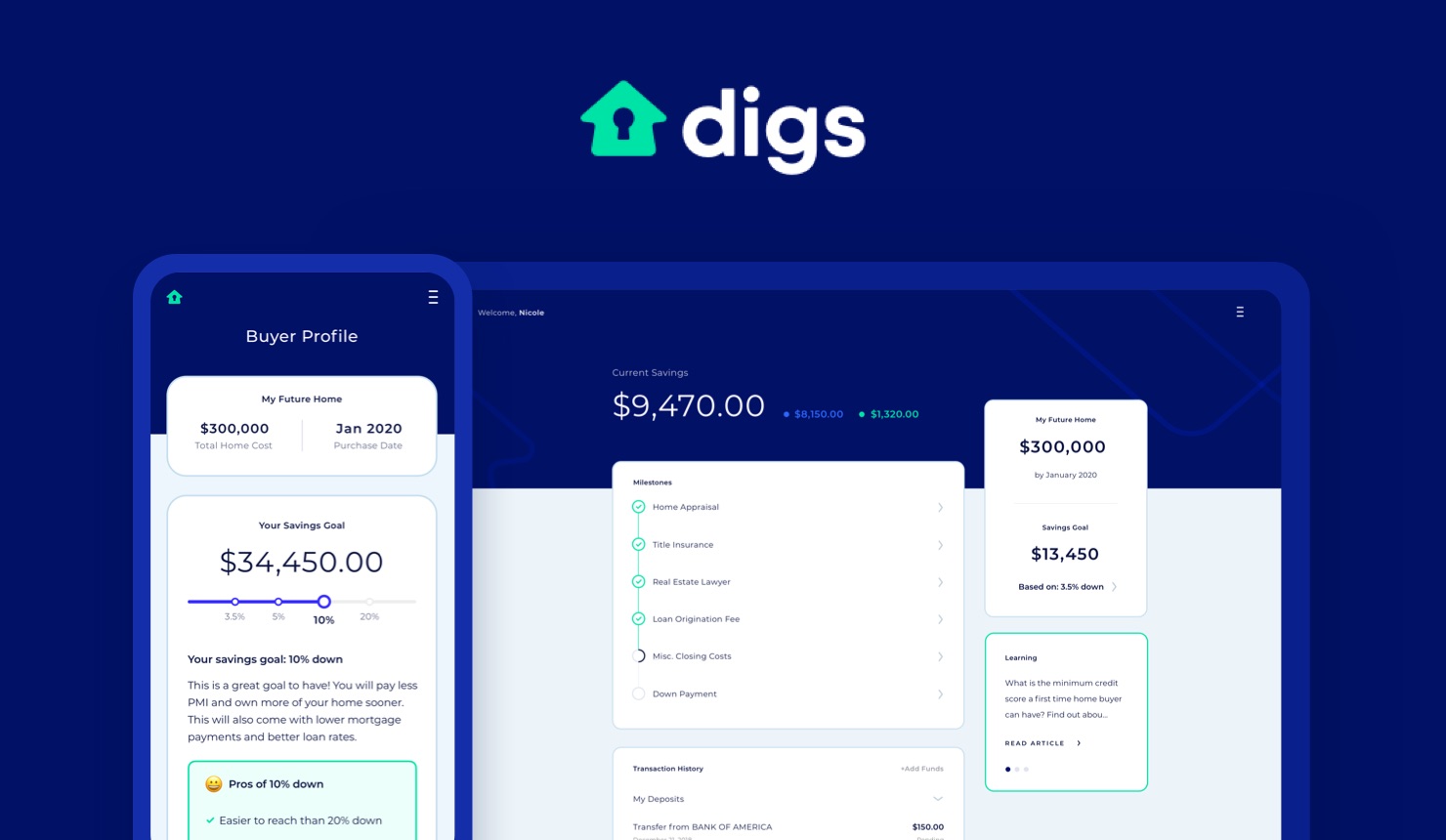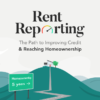It’s exciting to think about buying your first home. No more landlord, a space to call your own, and a place to start a family. It’s an emotional purchase, and probably the largest one you’ll ever make. Most people jump right into their home search by heading straight to sites like Zillow or Redfin – and we don’t blame them! It’s fun to look at listings and daydream about move-in day.
It’s only after weeks (or sometimes months) of searching that they decide to asses their finances and whether or not they can actually afford the dream home they’ve found. Upon checking their savings, they assume they’ve saved the appropriate down payment and move on to the preapproval process. That’s not wrong by any means, as a down payment is one of the largest upfront costs during the buying process. However, it isn’t the only cost to consider. Not knowing all of the costs outside of your down payment can stop you dead in your tracks and delay – or even prevent – you from buying your first home.
Mistake #1: Only saving for a down payment

Saving for a down payment seems hard enough already, so why do you need to save for anything else? The good news is that you probably don’t need to save for the full 20% down payment that you may have thought. This leaves some room for you to budget for all of the other costs during (and after) the buying process.
Costs during the home buying process
First thing’s first: let’s look at all of the costs you should be budgeting for during the buying process. Some costs are required by your lender, while others are meant to protect you during the purchase, and some fall into both categories.
Down Payment
Cost: 3-20% of purchase price
We won’t focus too much on the down payment here. Just realize that when it comes to a down payment, one size does not fit all – whether we’re talking about your budget or the type of home you’ll be purchasing. The down payment can actually be as big or as small as you desire, as long as you can meet the required minimum amount for your lender.
Closing Costs
Cost: About 3% of purchase price
During the home buying process, closing costs are something you’ll hear mentioned frequently. But unlike a quote for a mortgage, it can be difficult to pin down the exact amount you’ll need to save up for these charges. That’s because there are a few different categories that go into closing costs and the final amounts can vary. They’re made up of a few different things that fall into three main categories: Lender fees, title fees and pre-paid costs.
Loan Origination Fee
Cost: .5-1% of loan amount
Early on, your potential lender begins the process of making sure they want to loan money to you. This process includes handling paperwork, reviewing your credit and history, etc. Simply put, they are spending their time to ensure you are creditworthy. The origination fee covers that effort. With a mortgage, the standard loan origination fee is between .5 and 1%.
Title Insurance
Cost: About $1,000
Title insurance is protection against title “defects”. Simply put, when you buy a house you – and the lender who is putting up a big portion of the money – want to be assured that the seller has a clear right (without defect) to sell the property to you. With all the different insurances, title insurance stands out as a little bit different. And that’s because it is protecting against past events, rather than future. Think about it, with car insurance, you are protecting against an accident that may occur in the future. The same is true of health insurance.
Real Estate Lawyer
Cost: $500-$1,000
Some states actually require a real estate lawyer to be involvedin certain portions of the transaction. But even where it’s not required, it can be helpful to have a lawyer on your side. The good news is that although it might seem expensive to hire a real estate law firm, the costs aren’t as high as you may think. We’ll dive into specific costs a little later but don’t worry – it is a relatively cheap expense, especially in comparison to the large purchase you’ll be making!
Home Appraisal
Cost: $400-$600
Simply put, a home appraisal is an independent evaluation of the home you’re planning to buy.Appraisers are licensed at the state level and cannot have an interest in the property. This is because they need to be totally unbiased in determining the fair market value of your future property and cannot be financially – or otherwise connected – to the buyer or seller.
Costs after the home buying process
When you’re renting an apartment and the air conditioning goes out, your first move is to call the landlord. When you own the home, the bill is all yours and it could end up costing you thousands of dollars you didn’t anticipate.
As you consider what you can really afford, don’t focus on just monthly mortgage costs. Keep in mind that you’re responsible for those costs as well as property taxes, insurance, maintenance and emergencies. Depending on where you choose to buy your home, you could also be paying HOA dues and area assessments. Below is a general list of items to consider beyond your monthly mortgage payments:
The Mortgage Itself
When deciding how much house you can afford, a good rule of thumb is that your monthly payment is about 25% of your total take home. Simply put, if your mortgage payment will be about $1,000 and you bring home $4,000, you’ve passed this first test.
Property Taxes
The amount you must pay in property taxes varies from city to city and is based on the value of your property, including your home and the land it is on. Your local government uses these taxes to pay for water and sewage, as well as local law enforcement and other government agencies.
Homeowners Insurance
Homeowners insurance is a type of property insurance that covers any loss or damage to your home, as well as any assets inside the home. It also covers accidents that may occur in the home.
PMI, aka Primary Mortgage Insurance
PMI stands for Private Mortgage Insurance and simply put, it’s insurance you pay to protect the lender. Unlike normal insurance, you’re paying the premium to protect someone else, which causes part of the confusion. So why does PMI exist? PMI is there for a very important reason, to provide a way that you can become a homeowner without a 20% down payment.
HOA Dues
A homeowners association fee, or HOA fee, is a monthly payment that must be made by certain types of residential properties. Home Owners Associations collect these fees in order to maintain common areas of properties. Examples of this might be lawn care, trash collection or snow removal.
Special Assessments
A Special Assessment District or S.A.D. is an area in which the value of real estate is increased due to any number of public projects. In these areas, a tax is implemented to pay for the cost of the improvement.
Maintenance Costs
A maintenance cost could be anything from fixing a cracked driveway to repairing an old roof. It’s a good idea to budget for improvements since you never know what will come up due to natural wear and tear on your new home.
An Emergency Fund
Finally, you’ll need an emergency fund. Outside of any money you’ll use for the down payment, this money should be kept in a safe and separate account in case something goes wrong in your new home. It also protects you if you lose your job or have personal circumstances that may make your monthly payment difficult. Three to six months of savings is ideal and will help make your first home experience enjoyable, rather than stressful!
Mistake #2: Trying to time the market

Here’s the honest truth when it comes to asking yourself, “When should I purchase my first home?” – you should purchase your first home when YOU are ready. Not when interest rates go down, or your Uncle is selling his fixer-upper, or even when your parents offer to help you with a down payment. Your long term financial success means you have to make the best choices for your future.
Market conditions will change as long as the market exists so although it’s important, it’s not the right indicator to focus on. Think about people who were trying to time the market before 2008. Home prices were on the rise and everyone seemed to be getting in on them! It was a lot easier to get a loan – whether or not you could afford it – and people were doing so in droves.
If you were in that position and everyone was telling you to buy, buy, buy because prices were only going up – it would be hard to disagree. As a result, many people bought homes that didn’t have the proper long-term funds to do so. When the market crashed, they were left with homes that they paid $350,000 for, now worth less than half. Add that to those easy-to-get loans, some with escalators, and you could end up paying more year over year, even though your asset was now worth nothing.
Focus on making a good financial decision
The individuals who were in a strong financial position and made a solid investment they could afford weren’t facing foreclosure, although they probably weren’t too happy about the crash. They were able to continue living in their homes and waited as the market returned over the next few years.
Are we saying there is going to be another market crash? No, we’re not in the business of predicting doom and gloom. But we are saying, no matter what you’re hearing, seeing or feeling – make the decision to buy your first home when you are in a healthy position to do so.
If you’re ready to ask, “When should I buy a house?”, then we’re ready to help you know when that time comes.
Ask yourself if you really have the time
If you’ve passed the first test and can afford a new home, that’s great! But, it doesn’t mean the stars have aligned just yet. Another important question you need to ask yourself is whether or not you have the time to invest in a new home.
New homeowners often expect things to go perfectly when they get the keys but in all honesty, sometimes murphy’s law goes into effect after you sign on the dotted line. Even before you close, the home buying process can be long and stressful – from looking at homes, to working on contracts, to going through the approval process. All this is exciting if you’re in the right place to make the move, but it can quickly become overwhelming if your life was chaotic to start with.
Think about this scenario – you’ve been at a job for two years and things are going great. Your boss knows you well and respects your work, so when you decide to buy a home, he or she is supportive. When you have to skip out early to meet your realtor or you get calls at the office trying to verify details for your mortgage application, they understand and give you the space you need to make it all happen.
In an alternate scenario, let’s say you’ve just been promoted and the new role comes with double the responsibility. You’re trying to get to know your colleagues, a new boss and meet the deadline of a big project everyone is working on. When you have to slip out of the office or take personal calls, your boss questions your commitment and your colleagues feel like they’re carrying your weight.
Is it impossible to close on a house when your career is crazy? Of course not, but these are just things to consider as you take on this commitment. The same is true if you’re planning your wedding or an extended vacation. Make sure you can give the necessary amount of attention before you close – and after – without stressing yourself too much.
If you have too many balls in the air, taking a little extra time is in your best interests. Remember, there’s no perfect time to buy a house, just make sure it is the right time for you!
Take a good look at your credit

Your credit can play a big part in buying a house, from how much you can borrow to what interest rate and terms you’ll be eligible for. If you haven’t pulled your credit report in a while, it’s time to face the music. If you have a lot of outstanding, or debt in arrears, it may make sense to take a year to rent and start paying those things down.
Let’s say your credit rating barely qualifies you for a home the first time you apply, and the rates are not in your favor. You push through anyway because you’ve got your eye on homeownership now, and you buy a house a few months later. You may be a homeowner but you’ve got a loan with terrible rates and you’ll end of wasting thousands of dollars in fees and interest as a result.
Instead, perhaps you take a year to focus on credit repair and demolishing your debt. You pick up a fun extra job and work towards the goal of improving your score. In just a few short months, you’ve paid off a credit card. Then your car! Your credit score starts ticking upwards and the next time you apply a year later, not only have you been offered a much better rate, you now qualify for different programs or lenders. Over the term of the loan, it equates to tens of thousands of dollars back in your pocket.
It’s not to say that you don’t get the house either way. But one may be the wiser decision when you consider your long-term success versus that short-term goal of buying your first home. Our job here is to help you consider all your options and help you be in a position to know what’s best for you.
Is the timing right in your life?
It is called the American Dream for a reason and since it’s a big part of our culture, most everyone has an opinion on it. As you consider home ownership for the first time, take a moment to breathe and tune out what others may be telling you. Don’t worry about “wasting” money on rent or taking advantage of a favorable market above all else. Listen to your gut and don’t be afraid to wait if the timing doesn’t feel right for YOU.
Your friends and family want the best for you, but at the end of the day, you’ll be the one with the mortgage payment. At Digs, we are strong advocates of becoming a homeowner and we’ve designed savings programs, expert connections and resources galore to support you on your journey. But we also believe in education that puts you in the driver’s seat and ensures you make a decision that is in your best interest – today and five years down the road.
The solution: A savings app for first-time buyers

We hope this article has brought a little transparency to the home buying process! That’s our mission here at Digs: to help people reach homeownership sooner through educational and financial tools. Our team has decades of experience in the real estate and technology industries and is already helping 1,000s of people across the U.S. save for their first home.







